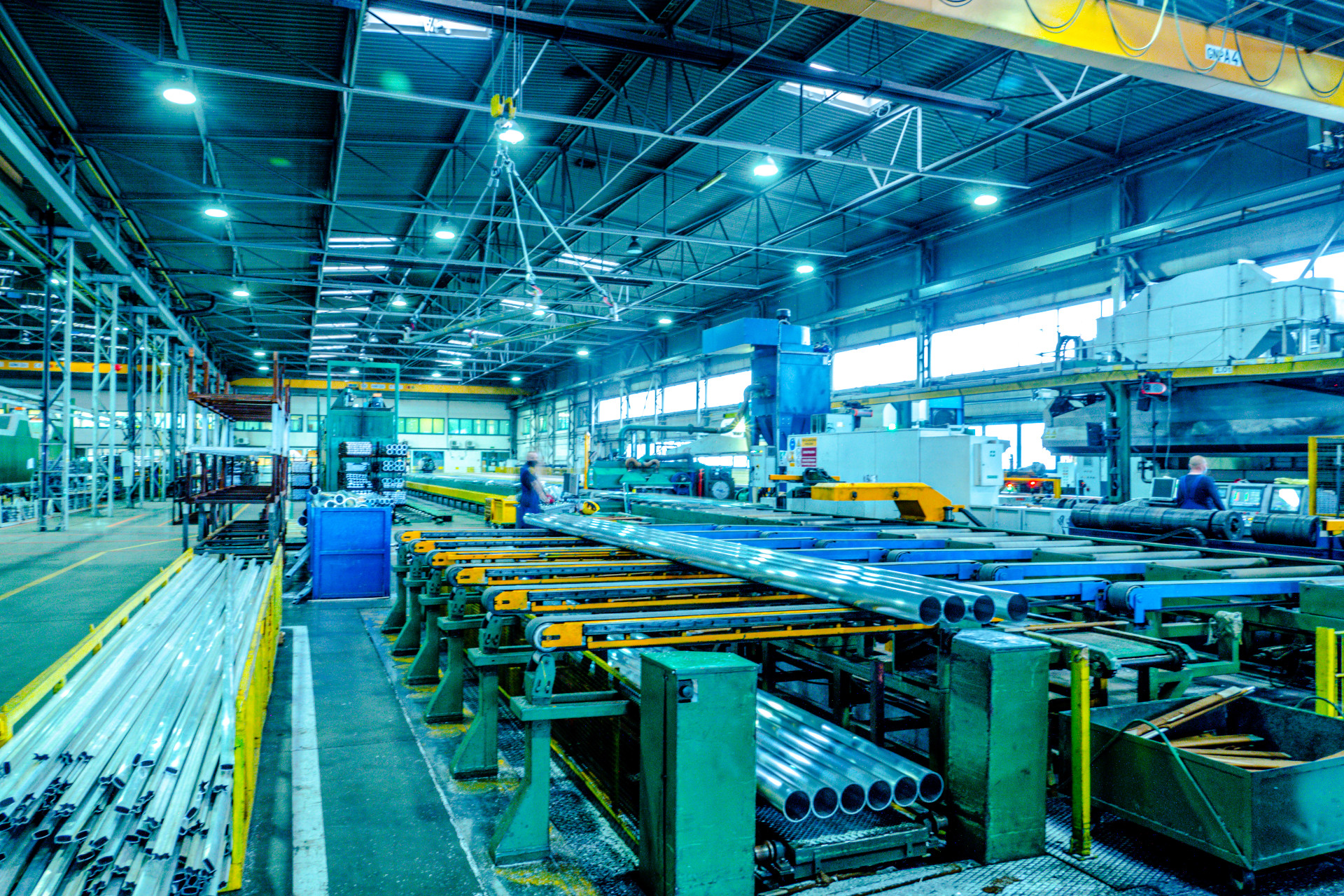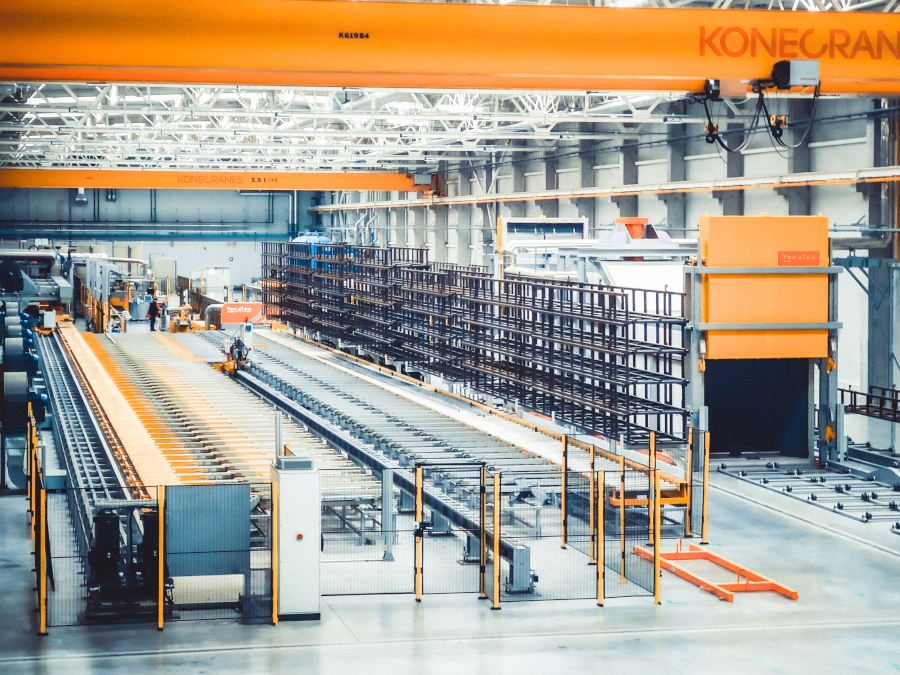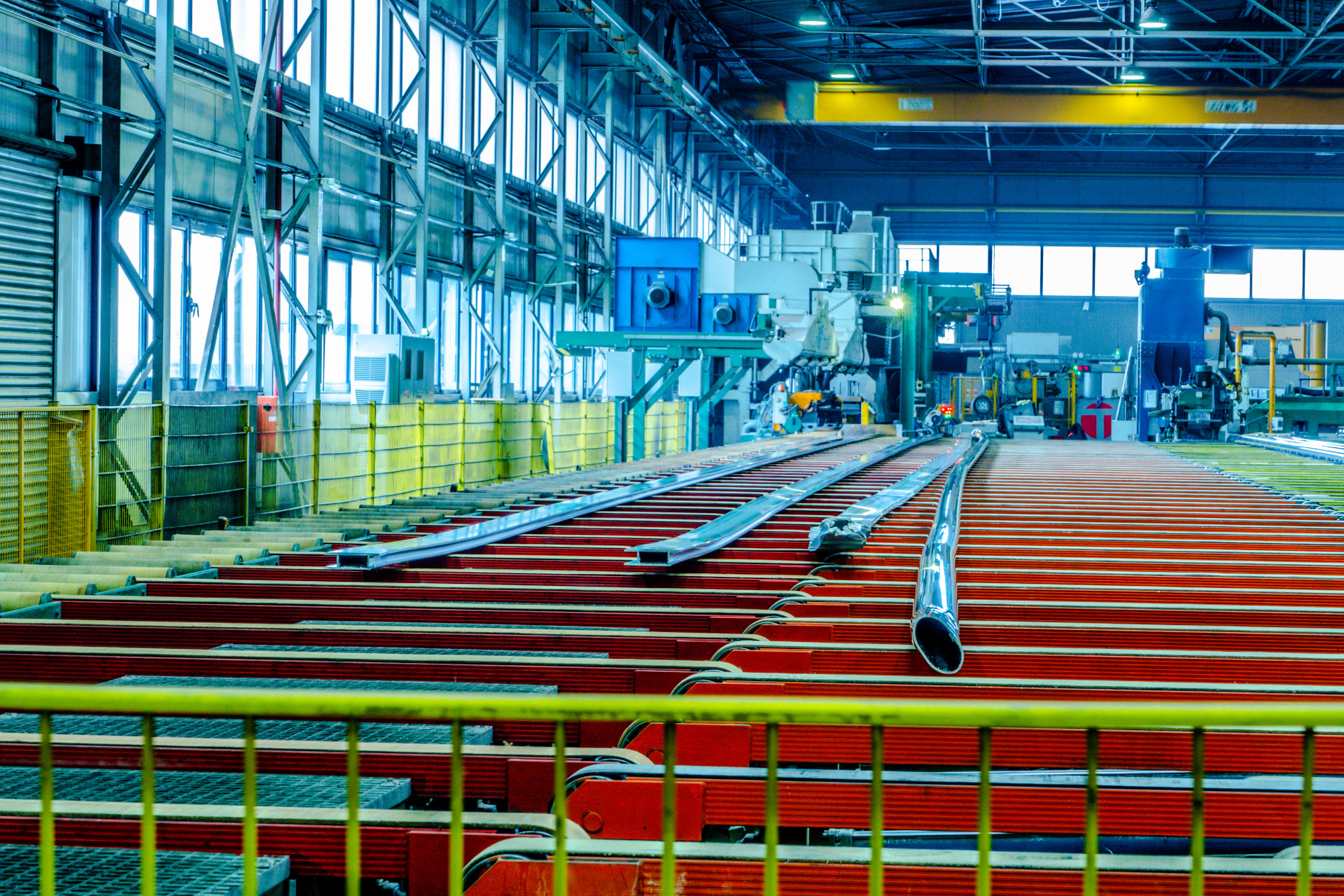Production of aluminium profiles
FINAL SA uses hot direct extrusion process to manufacture aluminium profiles. This versatile plastic processing allows for obtaining the desired shape of the product during just one technological procedure. Using extrusion it is possible to manufacture the most complex shapes of cross-sections, which will meet the needs of designers and constructors. The versatility of this plastic processing makes it possible to manufacture products which are characterized by high mechanical properties, appropriate chemical composition, high precision of dimensions, and high quality of external surface.
Additionally, the external surface of aluminium profiles can be upgraded by anodizing or powder coating, which is also offered by FINAL S.A..
The priority for FINAL SA is to provide its business partners with products according to most economical model based on the One-Stop-Shop principle. This way, the entire production process, starting at extrusion through machining, surface upgrading to logistics (and not only), is carried out by one organization only - FINAL !
Aluminium profiles extrusion plant with modern presses
Final SA is a technologically advanced production plant which deals with the production of profiles made of aluminium alloys. Our machine park includes, amongst others, three fully automated technological lines for direct hot extrusion. The most important part of each line is a hydraulic press. Our presses are characterized by pressing force 1600 tones, 2000 tones and 22000 tones, and they are adjusted to the manufacture of products from 7” and 8” diameter feed.
The maximum width of profiles manufactured by FINAL SA is 200 mm and the minimum thickness of the wall is 1 mm. FINAL SA is able to manufacture products with lengths from even 6 mm up to 12 mm! However, it must be noted that the standard length of profiles is between 4 up to 7 m. All other lengths are subject to an individual evaluation.


Profiles extrusion from best quality aluminium alloys
Extrusion of aluminium profiles is carried out according to the requirements of European standards, whilst the manufactured products are subject to quality control at each stage of the production process. Feed in the form of aluminium ingots comes from the best manufacturers on the market. All aluminium alloys used by FINAL SA are made assuring due diligence so to guarantee our clients the best combination of mechanical properties and high quality surfaces. Ingots delivered to our plants are continuously inspected to ensure the repeatability of production processes, thus the homogeneity of products delivered to our partners. Aluminium alloys offered by FINAL SA are presented below together with the examples of their applications:
- alloy 1070A - good corrosion resistance, very good deformation in plastic processing; it is not subject to thermal processing after extrusion; compared to other aluminium alloys, it is characterized by the best electric and thermal conductivity and the lowest mechanical properties; it is used in solutions which require heat exchange, in automotive in fuel filters or in headlights, as well as in chemical industry.
- alloy 6060 - it is the most popular alloy in the industry of extruded profiles due to its unique combination of mechanical properties and the quality of surface; it is appropriate for decorative anodizing, and can be welded with all methods; it is used in construction (windows, doors, façades) and interior finish, in electronics (radiators), in packaging, in automotive and transport, as well as in modern advanced technologies.
- alloy 6063 - it is characterized by a good corrosion resistance, can be welded with all methods and anodized; it has better mechanical properties than alloy 6060; it can be anodized; the examples of applications are architectonic industry (structures, ladders, roofs), automotive and transport industry (ship boards, floors).
- alloy 6005A - it has a good corrosion resistance, good mechanical properties, and can be welded; its surface can be protected by anodizing; it is most often used in transport industry (construction of semitrailers and buses), in construction industry in light structures
- alloy 6106 – it is characterized by good mechanical properties, can be welded with all methods, has good corrosion resistance; its surface can be protected by protective anodizing; it is used in transport industry and automotive, construction and in light structures.
- alloy 6082 - it is characterized by best mechanical properties in series 6xxx; surface is protected by protective anodizing; it has a good corrosion resistance, can be welded with all methods; it is most often used in construction industry to manufacture scaffoldings and trusses, in automotive to construct vehicles, in transport industry or in applications with high load.
